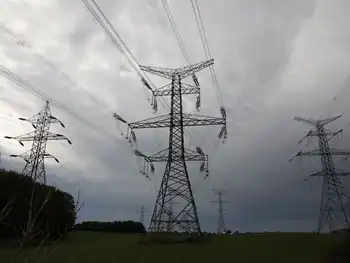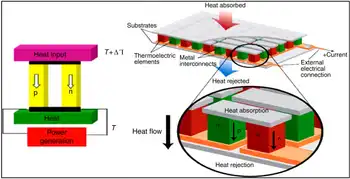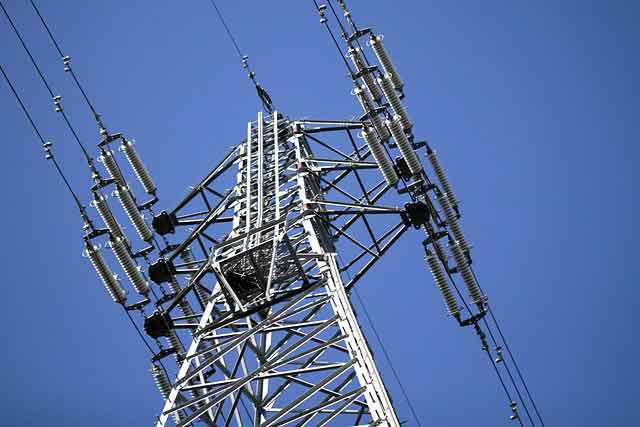How big power will keep control
By Nick Rosen, Off Grid
High Voltage Maintenance Training Online
Our customized live online or in‑person group training can be delivered to your staff at your location.

- Live Online
- 12 hours Instructor-led
- Group Training Available
Sam Laidlaw is boss of Direct Energy, which sells energy to five million customers in the United States and Canada. He has revolutionized Direct Energy, bringing in a scheme where American customers can pay extra $25 a month to ensure their electricity is generated from wind power.
So far the company has power purchase agreements totaling 813MW of wind power but that will increase as it wins more customers. Laidlaw provides energy and energy-related services to residential and business customers in Texas, and the north and east of the U.S., as well as across Canada. But he has no ideological commitment to renewables, Direct Energy owns and operates approximately 3,000 natural gas wells in Alberta, while in Texas it owns three gas-fired power plants.
He aims to sell every American and Brit a “warm, well-lit home” and in a carbon-constrained world, he argues, energy companies must reinvent themselves. No longer can they thrive simply by offering consumers an “all-you-can eat buffet” of cheap gas and electricity, with scant regard for emissions. Instead, “in future, we will sell you a warm, well-lit home and take care of everything else,” said Mr. Laidlaw, a former oil company executive who was educated at Eton and Insead and joined Centrica in 2006.
The companies will continue to sell gas and electricity “but we will sell more energy-efficiency products — insulation, heat pumps, solar panels.… And we will add valuable margin and pick up more customers along the way.”
As well as owning British Gas — one of the UK’s Big Six power companies Centrica owns Direct Energy, the American retail energy business, and three other wholesale energy production and storage businesses.
“We decided three years ago that in a world of climate change, carbon dioxide cuts and increased consumer enthusiasm for lower-carbon products, we wanted to turn all of those things into a business.” For Mr. Laidlaw, the answer to the challenge of carving a viable energy business out of reduced consumption lay in the unlikely form of the company’s boiler repair division, a hidden jewel — an army of experienced engineers.
Mr. Laidlaw’s plan was to transform this band into the shock troops of a green revolution, training the engineers to conduct home “energy audits” and to install a range of other products, from solar panels to smart meters. The strategy is reaping results already. “If you look at the revenue stream between selling energy and services, there is a change under way,” Mr. Laidlaw said.
“We are starting to see some of the potential benefits from that,” Mr. Laidlaw said, adding that this was only the start. He believes that gas demand could fall by up to 15 per cent over the next five years. “You could get nearly half of those cuts simply from energy efficiency,” he said.
Far from being a threat to utility companies, energy efficiency, Mr. Laidlaw believes, represents a vast untapped business opportunity, one that could be worth up to £150 billion in the UK.
“UK energy consumption is one of the highest in Europe because of the poor quality and age of our housing stock,” he said. “So, there is a huge opportunity.”
With a market value of £13 billion, 33,000 staff and 15.7 million customers, Centrica is applying the same strategy to Direct Energy, which sells energy to five million customers in the United States and Canada. And while Centrica’s traditional businesses of producing and selling gas and power still generate the lion’s share of group profits, Mr. Laidlaw believes that services will be increasingly important. New technology will broaden the opportunity and the company is preparing to launch a home-based fuel cell that generates electricity, as well as heat.
“You will have a boiler that will also generate electricity and you can export that to the grid and get paid for it,” Mr Laidlaw said.
Yet the real key to unlocking the opportunity will be the rollout of “smart meters” in all 26 million homes in the UK, plans for which the government is expected to unveil this week. Smart meters, monitoring household energy all day, will allow for more sophisticated services, including systems that allow people to control home appliances remotely or to turn the heating on automatically when their mobile phone indicates that they are near home.
Most importantly, they will let utilities control demand by giving discounts for off-peak energy use. By encouraging people to run their dishwashers and tumble dryers at night, utilities will be able to ease overall demand, allowing Britain to get by with less electricity and fewer emissions.
“Consumers will not have the agonies of estimated bills and we won’t need to build as many power stations,” Mr. Laidlaw said.











